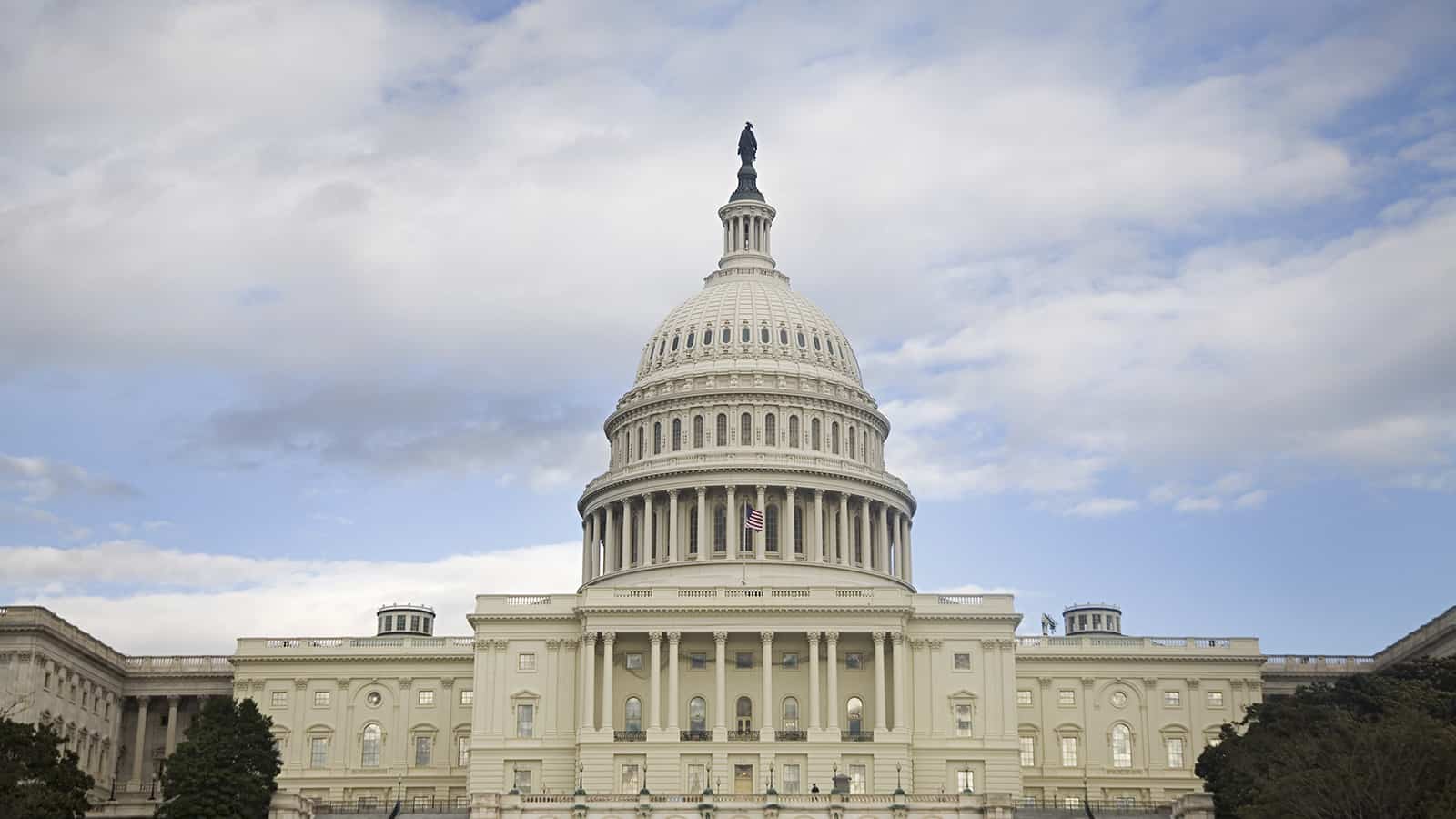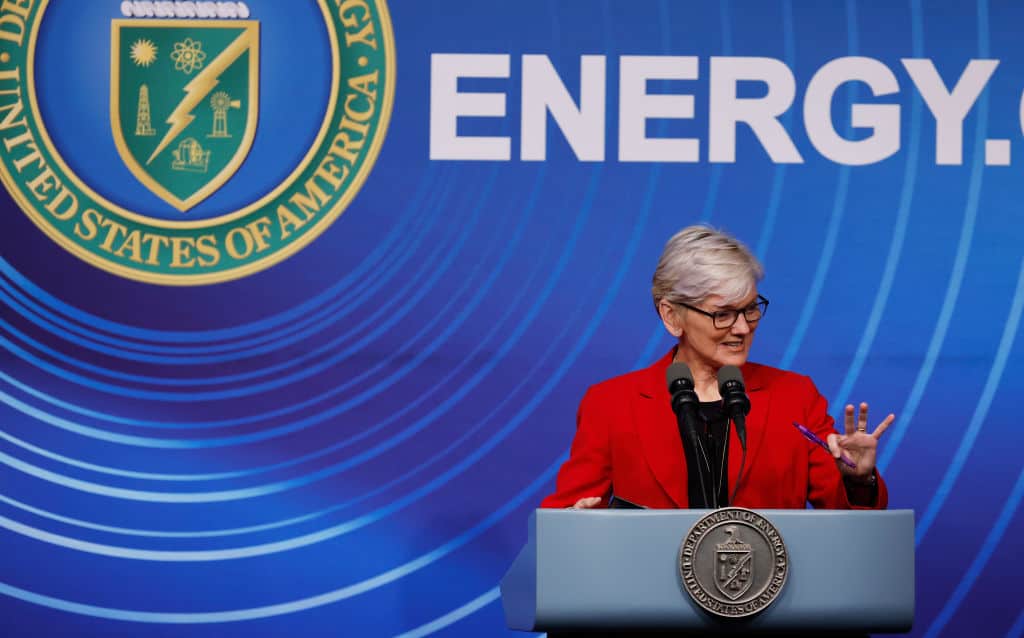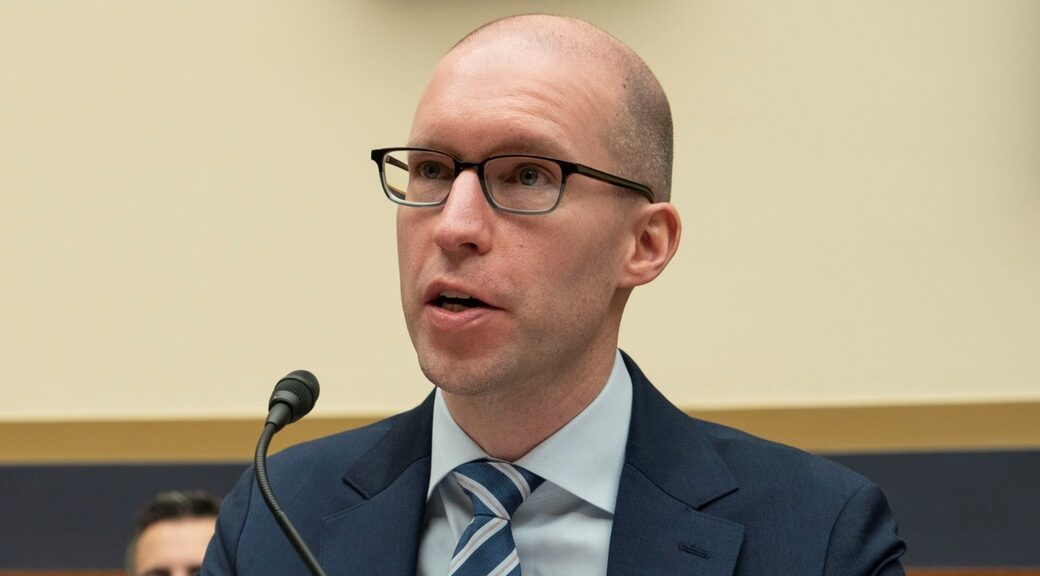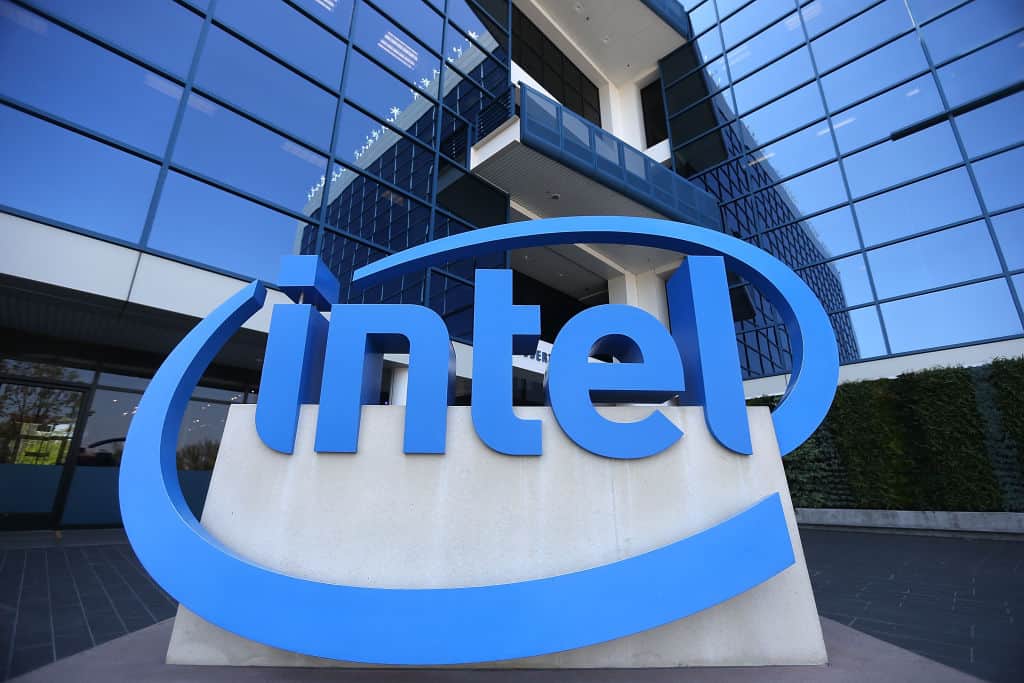New NAM Ad: Senate Must Pass Tax Bill Now

Earlier this year, the House passed legislation including key NAM tax priorities. Now it’s time for the Senate to do the same.
That’s the message of a new NAM digital ad campaign launched today and set to run over the next several weeks.
What’s going on: The 30-second TV ad—which will stream in Washington, D.C., and in the key states of Idaho, Kentucky, Louisiana, Oklahoma, New York and New Hampshire—asks viewers to urge the Senate to pass the Tax Relief for American Families and Workers Act, which cleared the House by a bipartisan vote in January.
- The legislation restores three key pro-growth tax provisions from the 2017 Tax Cuts and Jobs Act that expired in 2022: immediate expensing for domestic R&D, enhanced interest deductibility and full expensing.
The background: Earlier this month, Courtney Silver, president and owner of Ketchie and chair of the NAM Small and Medium Manufacturers Group, told the Senate Finance Committee about the impact the three provisions’ expiration has had on her family-owned precision machining company.
- “In the years following the TCJA, I was able to make a higher level of investment because I knew our tax code was going to have a baseline of certainty,” she said. “Today, however, I am unable to make these investments because of the uncertainty that Congress will address the expired TCJA provisions. . . . Because I am unable to realize the full deduction of my investment within the year I purchase it, the investment seems too risky and irresponsible.”
What’s needed: Senate Majority Leader Chuck Schumer (D-NY) has taken an early procedural step to put the House-passed legislation on the Senate’s calendar. But more needs to happen, and soon, the NAM’s ad tells viewers.
- “Vital tax provisions are expiring, harming our ability to compete globally and invest in new factories and equipment,” the ad says. “The House has done its job and restored these provisions with overwhelming support. The Senate needs to act now.”
DOE to Award Record-Setting Decarbonization Funds

The Department of Energy on Monday announced record-setting funding aimed at decarbonizing energy-intensive sectors, POLITICO Pro (subscription) reports.
What’s going on: The nearly $6 billion in “funding from the Democrats’ climate law and the bipartisan infrastructure law for industrial decarbonization will be spread across 33 projects and 20 states,” where it “will apply to some of the highest-emitting industrial manufacturing sectors—often described as ‘hard-to-decarbonize’ industries—including iron and steel, aluminum, cement, concrete, chemicals, food and beverages, and pulp and paper.”
Where it’s coming from: The money will be drawn from funds set aside under the Inflation Reduction Act ($5.47 billion) and the Bipartisan Infrastructure Law ($489 million).
Why it’s important: The many projects to be funded—which include groundbreaking recycling initiatives, hydrogen-use projects, decarbonization of thermal processes and more—will remove approximately 14 million metric tons of emissions every year, the DOE estimates.
- Five of the highest-dollar-value projects, at half a billion dollars each, “are focused on decarbonizing cement, concrete, aluminum, iron and steel.”
- The work will take place in five states—Indiana, Ohio, California, Iowa and Mississippi—and a still-to-be-determined spot on the Mississippi River Basin.
- Many of the projects are spearheaded by NAM members, who have been critical in innovating decarbonization efforts from within the industry.
The NAM’s take: “Manufacturers are innovating and making tremendous investments to decarbonize their processes and products,” said NAM Vice President of Domestic Policy Brandon Farris. “It is great to see the Department of Energy recognize multiple NAM members for their industry-leading initiatives.”
Q&A: What You Need to Know on Tax Policy

Earlier this year, the House passed the Tax Relief for American Families and Workers Act, and the bill is now with the Senate to consider. NAM Vice President of Domestic Policy Charles Crain discusses what’s included in the bill, why the provisions matter to small and medium-sized manufacturers, other tax policies the NAM is focusing its advocacy efforts on and how SMMs can get involved.
Q: There is a major tax package moving through Congress. Can you explain what is included in the legislation?
Crain: “The Tax Relief for American Families and Workers Act includes three of the NAM’s top tax priorities: the ability to immediately deduct domestic R&D expenses, enhanced interest deductibility on business loans and the ability to fully deduct the cost of capital investments in the year acquired (full expensing). All three of these provisions were implemented by the 2017 Tax Cuts and Jobs Act.”
Q: What exactly are these provisions and why do they matter to SMMs?
Crain: R&D – “For almost 70 years, the U.S. tax code allowed businesses to fully deduct their R&D expenses in the same year they were incurred. But starting in 2022, businesses were required to deduct those expenses over a period of years, making it more costly to conduct R&D in the U.S.”
Interest Deductibility – “Many manufacturers need to borrow funds to finance long-term investments in equipment and facilities. The interest that businesses pay on these loans is generally tax deductible, subject to a cap. Prior to 2022, the cap was based on a company’s earnings before interest, tax, depreciation and amortization (EBITDA); now, it’s based on a company’s earnings before interest and tax (EBIT). Lowering the cap limits the amount of interest that companies can deduct—effectively imposing a tax hike on manufacturers that finance job-creating capital projects.”
Full Expensing – “Manufacturing is a capital-intensive industry. The TCJA allowed companies to immediately deduct 100% of the cost of equipment and machinery in the year purchased—called ‘full expensing.’ But full expensing began to phase out in 2023; it’s currently down to 60% and will be completely eliminated by 2027. That significantly increases the after-tax cost of capital equipment purchases.”
Q: Why is it important for Congress to restore these tax provisions for SMMs?
Crain: “These are provisions that manufacturers, especially SMMs, use to grow their businesses and compete globally. The tax code must be fair and consistent. The first step is addressing these crucial issues.”
Q: What other tax policies is the NAM focusing its advocacy efforts on?
Crain: “We are in the middle of a three-part story. If the TCJA was the first part of the trilogy, the second act is the Tax Relief for American Families and Workers Act—and the grand finale will come in 2025, when many other TCJA provisions expire. Changes that will impact SMMs at the end of 2025 include the expiration of the 20% pass-through deduction, increases in individual income tax rates and a reduction of the estate tax exemption threshold. Without congressional action, this would affect the laws in effect for tax year 2026 and beyond. For SMMs organized as corporations, the corporate tax rate could also be at risk. The NAM is already pushing back, and we know manufacturers are ready to pull out all the stops to prevent them from taking effect in 2026.”
Q: Where can SMMs find more information, and how can they get involved?
Crain: “The NAM has created online action centers for R&D, interest deductibility and full expensing with information on why these issues remain important. NAM members are encouraged to check out these action centers for tools and resources they can use to contact lawmakers on these issues. They need to hear from you! You can also reach out directly to NAM Senior Director of Tax Policy Alex Monié.”
Q: What else do SMMs need to know?
Crain: “There is an old saying in D.C.: ‘Tax bills are hard.’ We have gotten the Tax Relief for American Families and Workers Act through the House, but more work needs to be done in the Senate. And the next 20 months will be an all-out sprint to prevent damaging tax increases from taking effect at the end of 2025. The NAM was successful with the TCJA in 2017—and, I believe, will be successful both this year and next—thanks to our members. Your stories are absolutely crucial to showing that manufacturers kept our promises following tax reform’s passage—and illustrating the economic damage that will happen if R&D expensing, interest deductibility and full expensing aren’t revived this year, or if tax increases are allowed to hit SMMs in 2026. Please reach out to your membership adviser, or to Alex, to share any stories, feedback or ideas as we continue to advocate for pro-growth tax policies for manufacturers in America.”
U.S. Awards Intel Largest Chips Grant

The U.S. will award Intel up to $8.5 billion in grants and as much as $11 billion in loans to expand chipmaking capacity and capabilities in four states, The Wall Street Journal (subscription) reports.
What’s going on: The funds, set aside under the NAM-backed 2022 CHIPS and Science Act to bolster domestic semiconductor production, “will go toward new factories and expansion projects in Arizona, New Mexico, Ohio and Oregon, the Commerce Department said.”
- Spurred by the federal funding, “Intel’s total investment in U.S. projects in the next five years is expected to exceed $100 billion,” according to the Journal, and to create more than 10,000 manufacturing jobs and about 20,000 construction jobs, according to the Commerce Department.
Largest award: The grant to Intel, the largest American chipmaker by revenue, is also the largest CHIPS Act award. It follows a February announcement of a $1.5 billion award to GlobalFoundries Inc.
- The award will support the reshoring of production of leading-edge logic chips, which are “essential to the world’s most advanced technologies like artificial intelligence,” the Commerce Department said.
- President Biden was in Chandler, Arizona, Wednesday to visit Intel’s Ocotillo chip-manufacturing campus.
Why it’s important: “We can’t just design chips; we have to make them in America,” Commerce Secretary Gina Raimondo told reporters on Tuesday, the Journal reports. “It’s an economic security problem. It’s a national security problem. And we’re going to change that.”
How it will work: The funding will be doled out in stages, “according to construction and manufacturing milestones,” the Journal said.
- “In Chandler, Arizona, the money will help to build two new chip plants and modernize an existing one,” CBS News reports. “The funding will establish two advanced plants in New Albany, Ohio, [and] … [t]he company will also turn two of its plants in Rio Rancho, New Mexico, into advanced packaging facilities. And Intel will also modernize facilities in Hillsboro, Oregon.”
The NAM weighs in: Wednesday’s “record, multibillion-dollar award is great news for [Intel] and U.S. manufacturing competitiveness,” the NAM wrote in a social post. “The NAM was a vocal supporter of the CHIPS and Science Act, and we will continue to champion policies that support the expansion of chip production in America.”
Manufacturers on Emissions Standards: Challenges Still Lie Ahead
Washington, D.C. – Following the Environmental Protection Agency’s release of new automobile emissions standards, National Association of Manufacturers President and CEO Jay Timmons released the following statement:
“Auto manufacturers in America make enormous investments to both improve the efficiency of their vehicles and provide numerous options for consumers. While it is clear the EPA listened to manufacturers’ concerns about the timeline of this rule, challenges still lie ahead. Successful implementation of this policy will still require congressional action on the permitting reforms needed to build the charging infrastructure to support this transition. That includes the ramping up of electricity production and developing a reliable domestic supply of critical minerals.
“Manufacturers will continue to engage with EPA Administrator Regan and President Biden as a more realistic standard is needed to harmonize this rule with other regulations governing vehicle emissions so that we can grow the sector in the United States.”
-NAM-
The National Association of Manufacturers is the largest manufacturing association in the United States, representing small and large manufacturers in every industrial sector and in all 50 states. Manufacturing employs nearly 13 million men and women, contributes $2.85 trillion to the U.S. economy annually and accounts for 53% of private-sector research and development. The NAM is the powerful voice of the manufacturing community and the leading advocate for a policy agenda that helps manufacturers compete in the global economy and create jobs across the United States. For more information about the NAM or to follow us on Twitter and Facebook, please visit www.nam.org.
NAM Poll Shows Americans Overwhelmingly Oppose LNG Export Pause; Support All-of-the-Above Energy Approach
Houston, Texas – The National Association of Manufacturers released the results of a new poll today showing bipartisan opposition to the Department of Energy’s freeze on export permits for new liquified natural gas projects. Respondents also strongly believe that the United States should pursue an all-of-the-above energy strategy, which includes supporting our global allies by providing cleaner, American-produced natural gas.
“The American public agrees: LNG exports are critical to U.S. energy security, creating well-paying jobs and supporting our allies in Europe and Asia. This poll underscores the need for President Biden to immediately direct the Department of Energy to roll back this misguided and counterproductive policy,” said NAM President and CEO Jay Timmons. “President Biden’s manufacturing legacy is at risk if the DOE and other federal agencies continue to act in direct contradiction to the stated goals of the president and the American people of bolstering manufacturing competitiveness in the U.S.”
The NAM analytics team conducted the poll March 15–18 and collected 1,000 responses from a nationwide sample of registered voters.
Key Findings:
- 87% of respondents agree the U.S. should continue to export natural gas.
- 76% of respondents agree with building more energy infrastructure, such as port terminals, here in the U.S.
- 74% of respondents agree with boosting production of domestic oil and natural gas in the U.S. instead of depending heavily on foreign energy sources.
- 72% of respondents prefer that American energy policy use an all-of-the-above strategy that includes oil and natural gas and renewable energy sources.
- 86% of respondents agree that we should change the permitting system so it doesn’t take so long for new energy infrastructure projects to be approved.
Background: On Jan. 26, the DOE announced a freeze on export permits for new LNG projects. Europe is the primary destination for U.S. LNG, accounting for 67% of total exports in the first six months of 2023. According to the DOE, Russian natural gas exports have 40% more global warming potential than U.S. LNG across 20 years. Russian gas also had 20% more global warming potential than European coal.
Read the full poll results here.
-NAM-
The National Association of Manufacturers is the largest manufacturing association in the United States, representing small and large manufacturers in every industrial sector and in all 50 states. Manufacturing employs nearly 13 million men and women, contributes $2.85 trillion to the U.S. economy annually and accounts for 53% of private-sector research and development. The NAM is the powerful voice of the manufacturing community and the leading advocate for a policy agenda that helps manufacturers compete in the global economy and create jobs across the United States. For more information about the NAM or to follow us on Twitter and Facebook, please visit www.nam.org.
Americans Oppose LNG Export Pause, NAM Poll Finds

Americans overwhelmingly support exporting U.S. natural gas, a new NAM poll reveals.
What’s going on: In addition to wanting continued exports of LNG, respondents believe the U.S. must boost its production of oil and natural gas, build more energy infrastructure and reform the broken permitting system, according to the findings of an NAM survey of 1,000 registered voters conducted March 15–18.
- In January, the Biden administration announced a moratorium on LNG export permits.
- Europe is the primary destination of exported U.S. LNG.
The details: Among the survey’s key findings:
- Some 87% believe the U.S. should continue exporting natural gas.
- About 86% say the permitting system must be changed so energy projects are approved and online in less time.
- Approximately 76% say the U.S. needs more energy infrastructure, such as port terminals.
- About 74% say the U.S. needs to increase domestic oil and natural gas production.
- And 72% would like to see the U.S. use an all-of-the-above energy approach that includes both traditional and renewable energy sources.
The last word: “The American public agrees: LNG exports are critical to U.S. energy security, creating well-paying jobs and supporting our allies in Europe and Asia,” said NAM President and CEO Jay Timmons.
- “This poll underscores the need for President Biden to immediately direct the Department of Energy to roll back this misguided and counterproductive policy.”
NAM: Make Employer-Sponsored Health Insurance Easier

Manufacturers are committed to providing employer-sponsored health insurance to their workers, the NAM told Congress late last week—and that’s why any changes made to the Employee Retirement Income Security Act of 1974 should facilitate rather than hamper those offerings.
What’s going on: “ERISA underpins manufacturers’ ability to provide health insurance to their employees,” NAM Vice President of Domestic Policy Charles Crain said in response to a call by the House Committee on Education and the Workforce majority for comments on how to improve ERISA as the law’s 50th anniversary nears.
- “The law allows manufacturers to provide uniform benefits to workers located across multiple states, and to tailor those benefits to meet the unique needs of their workforces.”
Why it’s important: Manufacturers have continued to offer high-quality health care plans to their employees—even absorbing cost increases in recent years to keep premiums affordable—but they “increasingly find their efforts to be responsible stewards of their health plans undermined by the complexities, bureaucracy and ineffective design of the broader health care system,” Crain told the committee.
What should be done: It is ERISA’s federal preemption of state and local laws that allows manufacturers to offer uniform health benefits, Crain continued, and that preemption must be preserved.
- “Eroding or eliminating preemption would make it significantly more difficult for manufacturers operating in multiple states to offer their employees health insurance because the manufacturer would be forced to comply with cumbersome and potentially conflicting state-based rules, a costly and untenable situation,” he said.
- In addition to maintaining ERISA preemption, Congress should seek to “make health care data more accessible and user-friendly for employer plan sponsors,” and reduce regulatory burdens on employers.
- Given that pharmacy benefit managers contribute to the increasing costs of providing employer-sponsored health care, the NAM also continues to call for PBM reform to increase transparency into these underregulated actors.
NAM Echoes Senators’ PBM-Reform Call

Pharmacy benefit managers—entities that increase health care costs for both manufacturers and manufacturing workers—are long overdue for reform, the NAM said yesterday.
What’s going on: Senate Finance Committee Chairman Ron Wyden (D-OR) and Ranking Member Mike Crapo (R-ID) announced at a Thursday press conference that they will ask Senate leadership to include in a government funding bill at the end of March legislation to rein in PBMs.
- The NAM, which has been vocal for years about the need for PBM reform , immediately joined the senators’ call for action.
- “Manufacturers stand with Chairman Wyden and Ranking Member Crapo in their calls for PBM reform as soon as possible,” said NAM Managing Vice President of Policy Chris Netram. “Manufacturers are committed to providing health benefits—with 93% of manufacturing workers eligible for employer-sponsored health insurance—even as PBMs continue to drive an increase in health care costs.”
Why it’s important: PBMs make health care more expensive for manufacturers and manufacturing workers by putting upward pressure on the list prices of medicines. Additionally, the three largest PBMs control 80% of the market, giving them tremendous leverage when negotiating contracts with manufacturing employers.
- What’s more, they operate with very little federal oversight and offer minimal transparency into their business models.
What should be done: An overhaul of the PBM framework should include solutions that effectively address rebate, fee and contract structures.
- “PBM reform, including in the commercial health insurance market, must increase transparency, ensure PBMs do not pocket manufacturer rebates and delink PBM compensation from the list price of medications,” said Netram.
Manufacturers Join Senators’ Call for Immediate Action on PBM Reform
Washington, D.C. – Following a press conference today in which Senate Finance Committee Chairman Ron Wyden (D-OR) and Ranking Member Mike Crapo (R-ID) called for pharmacy benefit manager reform, National Association of Manufacturers Managing Vice President of Policy Chris Netram released the following statement:
“Manufacturers stand with Chairman Wyden and Ranking Member Crapo in their calls for PBM reform as soon as possible. Manufacturers are committed to providing health benefits—with 93% of manufacturing workers eligible for employer sponsored health insurance—even as PBMs continue to drive an increase in health care costs. PBM reform, including in the commercial health insurance market, must increase transparency, ensure PBMs do not pocket manufacturer rebates and delink PBM compensation from the list price of medications.”
Background:
- As part of efforts to reduce health care costs for manufacturers and manufacturing workers, the NAM has advocated PBM reform consistently, including in the commercial health insurance market.
- PBMs increase health care costs at the expense of manufacturers and manufacturing workers by applying upward pressure to list prices that dictate what patients pay at the pharmacy counter, pocketing biopharmaceutical manufacturer rebates and failing to provide adequate transparency about their business models.
- The NAM supports reforms that will benefit employers by making PBM contracts more straightforward, transparent and predictable and workers by reducing the prices they pay out of pocket for their prescriptions.
- Last year, the NAM launched a six-figure television and digital advertising campaign calling for reforms to ensure PBMs pass on prescription drug discounts directly to workers and employers.
-NAM-
The National Association of Manufacturers is the largest manufacturing association in the United States, representing small and large manufacturers in every industrial sector and in all 50 states. Manufacturing employs nearly 13 million men and women, contributes $2.85 trillion to the U.S. economy annually and accounts for 53% of private-sector research and development. The NAM is the powerful voice of the manufacturing community and the leading advocate for a policy agenda that helps manufacturers compete in the global economy and create jobs across the United States. For more information about the NAM or to follow us on Twitter and Facebook, please visit www.nam.org.
